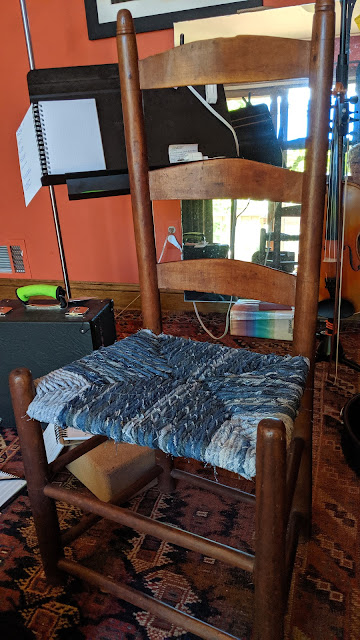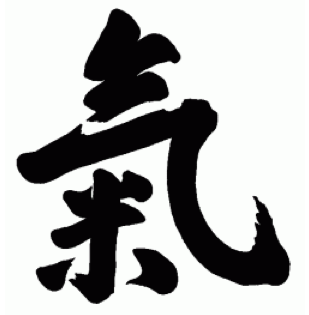Instructing the Instructor
Recently I attended a yoga class during which one of the students corrected the instructor. I'm sure she had the best of intentions. She is another teacher in the same studio, she has more experience, and she did it in a whisper where she thought others couldn't hear. Nevertheless, it was inappropriate.
As we gain experience in yoga, aikido or any "internal" practice, we inevitably face this impulse to "teach." Sometimes the urge is very strong. A little voice tells us that we are being helpful, that the instructor will benefit from our experience and knowledge. Unfortunately this is not the case. It doesn't help the instructor in question, nor his students, and it doesn't help us either.
First, consider how it feels for the instructor who is "corrected" by a student, especially by one with more experience. He may already be nervous with this person in the class. Now his fears are confirmed. His confidence is weakened, he may have difficulty regaining his focus, and the flow of the class may suffer.
The students are unlikely to miss what has happened, no matter how quietly it's done. How do students react when they see their instructor is being corrected? They lose confidence that they are being well-taught. Their focus, which should be on listening to the instructions and trying to translate them into their own actions, now drifts to the teacher and the question of his ability. In the long term, if it's not discouraged this behavior can spread, contributing to a culture in the studio or practice group in which no teacher is respected, and all teaching comes into question.
The most compelling reason for me to resist the urge to "teach," however, is that resisting it is better for my practice. When I fall into focusing on what the instructor "should" be doing, it's evidence that my attention has wandered. I'm no longer paying attention to how my body feels, where I am relaxed or tense, where I am sourcing my power.
In internal arts like aikido, yoga, tai chi or qi gong, it's the coordination of mind and body that brings growth and progress. One of the most important goals of practice is to bring the attention of the mind to bear on what we are doing with our bodies. Certainly I often fall short of that goal. The mind strays: this is its nature. But when I become aware that I'm critiquing the teacher, I can use this awareness as a sign to point my attention back to my practice.
I can think of only two situations in which it might be acceptable to interrupt a martial arts or yoga instructor with a correction. One is on the very rare occasion when the teaching puts someone in imminent danger. The second is if there is a mutually-understood teacher-student relationship between you and the instructor. Even then, your critique is better expressed in a quiet moment after class.
As we gain experience in yoga, aikido or any "internal" practice, we inevitably face this impulse to "teach." Sometimes the urge is very strong. A little voice tells us that we are being helpful, that the instructor will benefit from our experience and knowledge. Unfortunately this is not the case. It doesn't help the instructor in question, nor his students, and it doesn't help us either.
First, consider how it feels for the instructor who is "corrected" by a student, especially by one with more experience. He may already be nervous with this person in the class. Now his fears are confirmed. His confidence is weakened, he may have difficulty regaining his focus, and the flow of the class may suffer.
The students are unlikely to miss what has happened, no matter how quietly it's done. How do students react when they see their instructor is being corrected? They lose confidence that they are being well-taught. Their focus, which should be on listening to the instructions and trying to translate them into their own actions, now drifts to the teacher and the question of his ability. In the long term, if it's not discouraged this behavior can spread, contributing to a culture in the studio or practice group in which no teacher is respected, and all teaching comes into question.
The most compelling reason for me to resist the urge to "teach," however, is that resisting it is better for my practice. When I fall into focusing on what the instructor "should" be doing, it's evidence that my attention has wandered. I'm no longer paying attention to how my body feels, where I am relaxed or tense, where I am sourcing my power.
In internal arts like aikido, yoga, tai chi or qi gong, it's the coordination of mind and body that brings growth and progress. One of the most important goals of practice is to bring the attention of the mind to bear on what we are doing with our bodies. Certainly I often fall short of that goal. The mind strays: this is its nature. But when I become aware that I'm critiquing the teacher, I can use this awareness as a sign to point my attention back to my practice.
I can think of only two situations in which it might be acceptable to interrupt a martial arts or yoga instructor with a correction. One is on the very rare occasion when the teaching puts someone in imminent danger. The second is if there is a mutually-understood teacher-student relationship between you and the instructor. Even then, your critique is better expressed in a quiet moment after class.



Comments
Post a Comment